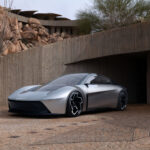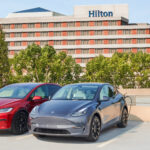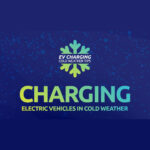Hyundai, Kia, and Genesis have announced the adoption of North American Charging Standard (NACS) charging ports for their all-electric vehicles in North America.
The South Korean manufacturer (all three brands are part of the Hyundai Motor Group) said that all new or refreshed EVs will come exclusively with a NACS port beginning in Q4 2024 in the US. This is slightly earlier than other brands announcing the switch, who usually mentioned 2025 as the beginning. In Canada, the switch will follow in the first half of 2025.
Additionally, an agreement with Tesla will enable Hyundai, Kia, and Genesis EV users to access the Tesla Supercharging network across the United States, Canada, and Mexico. Hyundai says this move will double the number of available DC fast charging points.
Hyundai will also prepare a solution for its existing and future customers with Combined Charging System- (CCS1) compatible electric vehicles. They will be able to access the Tesla Supercharging network through an adapter, which will be offered starting in Q1 2025. This is another interesting point of reference because, in the case of other brands that confirmed the switch from CCS1 to NACS, such adapters are expected to be available in 2024.
During the transition period, new NACS-compatible electric cars will be able to use the old CCS1 DC fast chargers through different adapters, which will also be available. Tesla already offers such adapters for its own customers.
For the Hyundai Motor Group, the switch to NACS and gaining access to Tesla’s Supercharging network are just two elements of a broader strategy. Hyundai and Kia, together with other manufacturers, intend to build an all-new fast-charging network in North America with at least 30,000 high-power chargers. The first of these stations should be opened in the summer of 2024.
José Muñoz, the president and global COO of Hyundai Motor Company, as well as the president and CEO of Hyundai Motor North America, said:
“Our collaboration with Tesla marks another milestone in our commitment to delivering exceptional EV experiences to our customers. This new alliance will provide Hyundai EV owners confidence in their ability to conveniently charge their vehicles and complements our joint venture company to create a new, high-powered charging network with at least 30,000 stations across North America.”
Rebecca Tinucci, the senior director of Charging at Tesla, said:
“Opening our Supercharging network to additional electric vehicles directly supports our mission to accelerate the world’s transition to sustainable energy. We’re proud to welcome Hyundai as the latest adopter of the North American Charging Standard.”
The number of brands that confirmed the switch from the CCS1 charging connector to the NACS in North America has increased to over ten and includes Ford, General Motors, Rivian, Volvo, Polestar, Mercedes-Benz, Nissan, Fisker, Honda, Jaguar, and now also Hyundai, Kia, and Genesis.










0 Comments